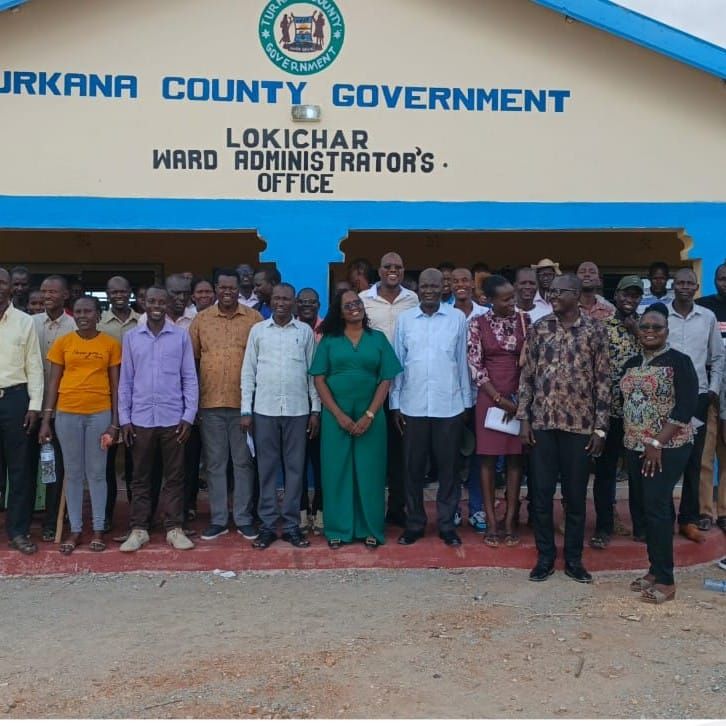Turkana County has launched public participation forums to shape its 2026–2027 Annual Development Plan (ADP), with residents of Turkana South Sub-county prioritizing critical investments in water and health infrastructure.
The vibrant discussions, held in Lokichar, brought together community representatives from Lokichar and Kalapata Wards, who voiced urgent needs to address water scarcity, enhance healthcare, and bolster disaster preparedness in the region.
During a joint meeting in Lokichar, residents identified the drilling of new boreholes at Ngaladei and Lomunyenkuparat as top priorities to improve access to clean and safe water.
Davidson Lokaalei, a resident of Lokichar and member of the Lokichar Students Association, emphasized the severity of the water crisis, stating,
“Both Lokichar and Kalapata share one common problem: limited access to clean and safe water. The situation has affected schools, households, and even the movement of pastoralists. We will vote for increased investment in water any day.”
His remarks underscored the critical role water access plays in supporting education, livelihoods, and mobility in Turkana’s pastoralist communities.
Beyond water, residents called for the fencing of existing Early Childhood Development Education (ECDE) centres to enhance safety, the upgrading of area administrator’s offices, and the equipping of Lokichar Sub-County Hospital to improve healthcare delivery.
Additionally, participants highlighted the need for stronger disaster preparedness measures to address the region’s recurring natural disasters.
James Eloto, a community member, spoke to this concern, saying, “Every year, we witness droughts and floods alternating in quick succession, destroying livelihoods. We want the county to enhance disaster mitigation and response.”
The forum was attended by key county officials, including Turkana South Sub-County Administrator Simon Koloi, Deputy Sub-County Administrator Peter Chichi, Ward Administrators Festus Lokucha (Lokichar) and Macklewis Ewoi (Kalapata), Economist Maurice Natoot, and HR Officer Monah Ateyo.
Responding to the community’s submissions, Deputy Directors Mike Aupe (Resource Mobilization) and Hellen Nakaru (Revenue) assured residents that their proposals would be carefully documented and considered in the final ADP draft.
“Your voices are central to our planning process, and we are committed to ensuring your priorities shape Turkana’s development,” Aupe affirmed.
The public participation process is a cornerstone of Kenya’s devolved governance system, as enshrined in the Constitution of Kenya (2010).
Articles 10, 174, and 196 emphasize public participation as a fundamental principle of governance, mandating that citizens have a direct role in decision-making processes that affect their lives. Specifically, the County Governments Act (2012) requires counties to involve communities in the development of plans like the ADP to ensure transparency, accountability, and alignment with local needs.
In Turkana, these forums empower residents to influence resource allocation and development priorities, fostering inclusive governance and ensuring that marginalized voices, such as those from pastoralist communities, are heard.
The Lokichar meeting exemplifies how public participation translates constitutional principles into action.
By engaging residents directly, Turkana County is not only addressing immediate challenges like water scarcity and healthcare access but also building trust and ownership in the development process.
The ADP, once finalized, will guide the county’s budgeting and project implementation for the 2026–2027 fiscal year, reflecting the aspirations of communities like Lokichar and Kalapata.
As Turkana County continues its public participation forums across other sub-counties, the emphasis on water, health, and disaster preparedness in Turkana South highlights the critical needs of a region grappling with environmental and socio-economic challenges.
With citizen input at the forefront, the county is poised to craft a development plan that delivers tangible improvements for its people, ensuring a more resilient and prosperous future.

